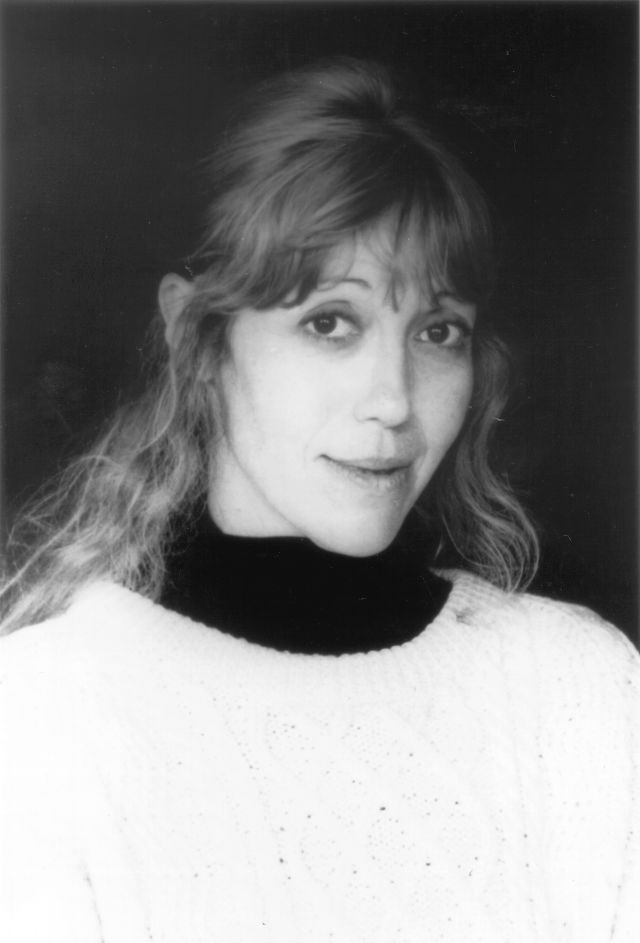Portland Writers Pay Tribute to Geek Love’s Katherine Dunn

Image: Vintage Random House
News of the death of Geek Love author and beloved Portlander Katherine Dunn hit this city hard last week. In the wake, we asked four Portland writers to weigh in on her impact on them, on their writing, and on her longtime hometown.
“Katherine Dunn came to us from some other, better and stranger place; her great novel Geek Love has no real precursors, and no clear offspring, but it's shaken a generation of readers with its fierce, unapologetic vision, and given a generation of writers heart to take chances. It makes us re-think what humans are, what families might be. The ways in which Portland now aspires to keep itself 'weird' might be traced back through Katherine's visions, and these ways may well be lost or unattainable. We can go back to her writing to remind us of what was so startling.
“Like many of its most famous 'graduates,' Reed claims Katherine Dunn, though she was a student for only a short time before 'going to Europe to become educated,' as she told an audience of students here in 2009. Speaking in her unmistakable voice (she also did radio work), from behind her signature dark glasses, she mesmerized us with her tales of boxing, reading from her excellent One Ring Circus. To hear this woman in her sixties—stylishly dressed with a silk scarf around her neck—speak so eloquently and learnedly of the sweet science was a revelation.
“She was also very kind to me, personally. Once we had lunch together, and the pastry chef, whom Katherine knew, came out to give us a special dessert on the house. Katherine introduced me as her 'young nephew.' Later, after the pastry chef departed, I expected her to explain this falsehood, but was too afraid to ask her about it. She never explained it. That may be, for me, one hint at why and how she was so grand.” —Peter Rock, author (The Unsettlement, My Abandonment, The Shelter Cycle) and Reed College English professor
“Katherine Dunn was old Portland—raw, unconventional, brave as hell. She was the boxing gyms and bars, the loggers and the street poets, a world where artists flourished. She was a time and a place where the beauty and magic of language was valued, where the rustle of newspapers filled the buses in the morning dawn, and everyone—everyone—it seemed, was reading. She was a wonderful, tender, honest soul, a person who saw the intense beauty in everything, even in what others deem ugly. She was fascinated by humanity, including our dark sides. The lasting impact of her work will be in the way she valued the truth above all else. ‘Write the truth,’ she drummed into me and other writers. ‘The rest is just boring piddly-shit.’”—Rene Denfeld, author (The Enchanted. Kill the Body, the Head Will Fall, All God's Children: Inside the Dark and Violent World of Street Families, The New Victorians)
“When I came to Portland in 1992, there were two artists whom I felt represented the city: Katherine Dunn and Gus Van Sant. Back then, I had in mind what I now think of the Old-Time Portland Weird. But when I got to know Katherine, I learned that she possessed other traits which I would soon come to consider essentially Portlandish. She was unfailingly warm, appreciative, supportive, and cheerful, wearing a smile every time I ran into her. Yes, her written words could be odd and dark and incisive—deliciously so. But the woman who created them was a magnificent embodiment of the best of her town and her time.” —Shawn Levy, author (King of Comedy: The Life and Art of Jerry Lewis, De Niro: A Life, Dolce Vita Confidential)
“In the 1980s she and I rode the same bus together, the 53, up into Northwest Portland. It was an amazing bus, with Dunn, John Callahan, Mayor Bud Clark's son, and other Portland luminaries of sorts. I loved to watch the way Katherine Dunn looked out at the city. You could tell she took it in and translated it into her own distinct world view. When she came to my classes at PNCA, students asked her about the scenes in Geek Love when one of the characters is drawing from a life model. They'd ask if Dunn had taking drawing classes. She told us all she was a nude model, at that same school, back when it was the museum art school. Telling these young students that she'd posed nude conveyed the perfect truth of Dunn's daring, alongside a vulnerability. Right there, I think that shifting perspective from artist to model to author changed their world view to lean toward greater humanity.”—Monica Drake, author (Clown Girl, The Stud Book, The Folly of Loving Life)
